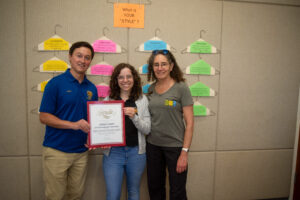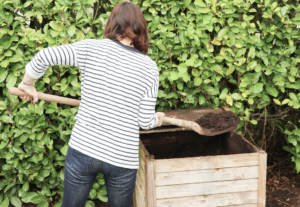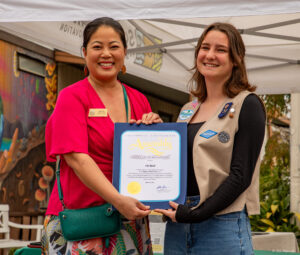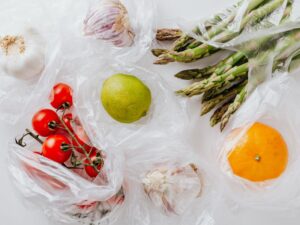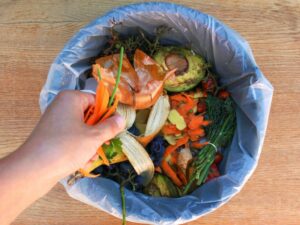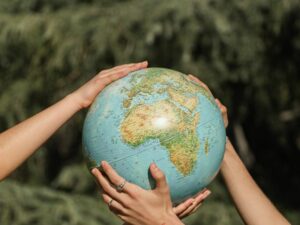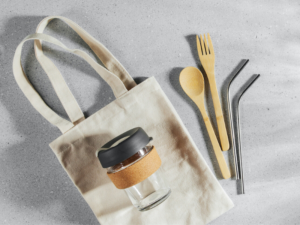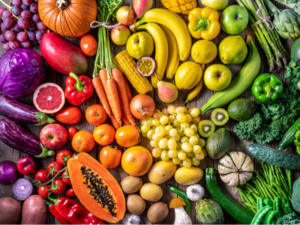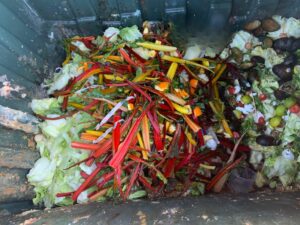Zero waste
Zero Waste Textile Expo 2025
Watch our recap video here The Zero Waste Textile Expo, hosted by Solana Center, brought together over 200 community members, dozens of passionate volunteers, and innovative local vendors. This year’s event made a powerful impact. Solana Center collected an astounding 718 pounds of textiles, and thanks to the support from recycling and reuse partners, 99%…
Read MoreCommercial Surplus Food: Data & Extraordinary Successes
Our team presented to the City of Encinitas Environmental Commission about SB1383 and how Solana Center is helping businesses prevent food waste. Executive Director Jessica Toth, Associate Manager Larissa Amaral, and UCSD Scripps Researcher Skylar Enge shared our success in preventing food waste and edible food donations to families in need. California’s SB 1383 is…
Read MoreClimate Solutions: Can I convert a garbage can into a compost bin?
Yes, it is a great solution when a compost pile is just not feasible because of small yards or sensitive neighbors. Here’s a cheap and easy way to convert one of your garbage cans into a compost bin. Materials: – 30+ gallon plastic garbage can, with locking lid (optional: bungee cords to hold the lid…
Read MoreTaking on Textile Waste 2024
The Taking on Textiles event was held on March 23, 2024 at Solana Center for Environmental Innovation in Encinitas, CA. It was open to the public. We were grateful for recognition from California Assemblymember Tasha Boerner’s office. District Director Janet Chin spoke to the importance of the event as an early beacon to the increasing…
Read MorePlastic Recycling Program – Thanks to Plastic Beach!
Tell a friend; we’ve got a plastic bag and wrap recycling program at Solana Center! Thanks to our partner Plastic Beach for making recycling easier for plastic materials that can’t go in the standard blue bin. They work to ensure all of the plastic bags and film are staying in the U.S. and being recycled nearby,…
Read MoreHow Can Cutting Your Food Waste Help the Climate?
Food waste is a common problem many households and food establishments are faced with. Throwing away food scraps and leftovers that could have been eaten seems like an easy solution but in reality has devastating outcomes. When food waste enters a landfill, it begins contributing to greenhouse gas emissions due to the anaerobic environment. When food…
Read MoreWaste Reduction
Waste reduction is the practice of making less, consuming less, and inevitably disposing of less. Reduction is the ultimate goal, not only because it protects our environment from waste, but because it prevents the destructive processes of extraction and manufacturing that happen upstream of our materials. The world’s population is growing, economies are growing, and…
Read MoreHow to Prevent Microfiber Pollution in Your Household
Have you heard of the term ‘microfibers’? These are tiny synthetic pieces of plastic yarn often shed by our clothing when in the washing machine. While they sound small, these microfibers have a big impact on our water ways and oceans, unfotunately often making their way to be ingested by marine life. Near the North Pacific Gyre of the…
Read More9 Ways to Keep Your Produce Fresh for Longer
It can be confusing to figure out how to store fruits and vegetables to keep them fresh and tasty. Here are a few tips to start you off. Want more sustainable food tips?
Read MoreSB 1383 Update: Organics Recycling Compliance Enforcement Changes in 2024
Senate Bill 1383, or the Short-Lived Climate Pollutant Reduction law, requires that businesses implement programs to ensure organic materials are no longer put in the trash, with edible food being donated and the rest sorted for organic waste recycling. Before the start of 2024, jurisdictions were required to visit Tier One and Tier Two (see…
Read More
